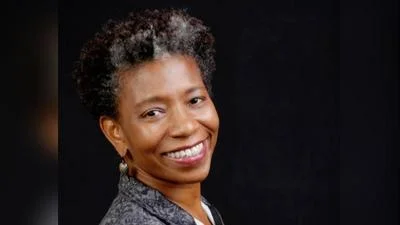Bryant & Stratton College-Milwaukee recently issued the following announcement.
If you are detail-oriented and think you would enjoy using math skills in your career but are not sure what exactly you want to do in the future, consider pursuing a career in either accounting or finance. While closely related, these two distinct disciplines offer different job descriptions and duties. Each specialty has a set of required college courses that must be taken to obtain a degree and qualify to work in the specific field you choose.
People who work in finance will plan, direct, and manage financial transactions, and work with the assets and liabilities of an organization. People who choose accounting will focus on reporting and recording the financial transactions and the daily flow of money into and out of the institution or organization.
Another way to look at it is that finance professionals typically look to the financial future of the organization while accounting looks to past financial practices. Accounting focuses on financial information whereas finance focuses on the management of money.
What is Finance?
Investopedia defines finance as “a term for matters regarding the management, creation, and study of money and investments.” This often includes activities such as investing, borrowing, lending, budgeting, and forecasting.The finance industry can then be divided into three broad categories:
● Public finance. Also referred to as “governmental finance,” this involves establishing financial policies, budgeting, and considering tax implications that government agencies use when allocating resources. The federal, state, and local governments all employ those who are skilled in finance.
● Corporate finance. This area concerns financial planning and operations of corporations.
● Personal finance. Financial planning for individuals, including investments, banking, retirement plans, and more are all a part of the personal finance sector.
Careers in Finance
A career in finance will have you learning how to grow small sums of money into larger ones. With a degree in finance, you can become:
● A financial analyst
● An investment banker
● A financial examiner
● A personal financial advisor
● A money manager
● A financial consultant
● A banking and insurance underwriter
● An entrepreneur
If you are wanting to advance your career in finance, consider pursuing Bryant & Stratton College’s financial securities certificate program, which will help teach foundations of securities, accounting, insurance, and additional professional topics related to finance.
[H2] What is Accounting?
Investopedia defines accounting as “the process of recording financial transactions pertaining to a business. The accounting process includes summarizing, analyzing, and reporting these transactions to oversight agencies, regulators, and tax collection entities. The financial statements used in accounting are a concise summary of financial transactions over an accounting period, summarizing a company's operations, financial position, and cash flows.”
Accountants, many of whom go on to become certified public accountants (CPAs), review client balance sheets, make sure payroll is properly maintained, check to see creditors have been paid, and provide other similar services. Those who pursue accounting careers work according to the rules and principles of the Generally Accepted Accounting Principles (GAAP), established by the Financial Accounting Foundation.
Accounting Careers
A degree in accounting opens the door to several career options. For example, the degree prepares you to pursue a career as:
● An accountant
● An auditor
● A budget analyst
● An accounts payable clerk
● A tax accountant
● A management accountant
● A revenue analyst
● A business manager
Finance vs. Accounting: Job Outlook
Both of these careers are in high demand, so both accounting and finance majors will have many opportunities to pursue upon graduation.The BLS has several different categories for those who focus on finance careers. For example, the expected growth for financial managers by 2029 is 15 percent, which is a much faster growth rate than average. By 2029, there will be a need for 108,100 more financial managers than there were in 2019.
According to the U.S. Bureau of Labor Statistics (BLS) Occupational Outlook Handbook, the job outlook for accountants and auditors will increase 4 percent by 2029 when the U.S. will need 61,700 more accountants than in 2019. The job outlook is also tied to the economy. When the economy is doing well, more people are working, and those people need help with preparing and reviewing financial documents and preparing their taxes.
Finance vs. Accounting: Skills Needed
Skills Needed for Accounting
The BLS lists a number of skills accountants need, including skills in:
● Analytical and critical thinking. Accountants critically evaluate data to identify issues in documentation and suggest solutions.
● Communication. As an accountant, you need to listen to your clients in order to address their concerns about the results of your work.
● Paying attention to detail. You must pay close attention to detail when compiling and examining documents.
● Math. Accountants may use advanced math skills, such as calculus and statistical analysis, to analyze, compare, and interpret facts and figures.
● Organizing. Strong organizational skills are important when working with a range of financial documents for a variety of clients.
Skills Needed for Finance
Skills needed for finance careers include the same ones needed for a career in accounting, but for slightly different reasons:
● Analytical skills. Evaluating data and information, and reviewing financial records, that affect their organizations.
● Communication skills. Explaining complicated financial transactions to decision-makers within the organization.
● Detail-oriented skills. Preparing and analyzing complex financial reports.
● Math skills. Understanding and interpreting complex financial documents.
● Organizational skills. Maintaining a wide range of information and documents.
Finance vs. Accounting: Coursework and Degrees
Bryant & Stratton College has several pathways to help graduates accomplish their dream of becoming an accounting professional. We offer a number of relevant career-building programs including an accounting diploma to pursue an accounting assistant career or for an associate degree or bachelor’s degree in accounting.
The BLS states that those who pursue a career in finance have degrees in finance, business administration, accounting, or economics. A business degree will provide you with many of the courses you need to pursue a career in finance. In addition to accounting degrees, BSC offers various degrees in business, including diploma programs, associate degrees, and bachelor’s degrees.
Whatever program you choose, you will find the instructors and staff at Bryant & Stratton College all behind you, rooting for you and helping you succeed.
Start Your Journey Today
The faster you begin your academic studies, the faster you will be on the path to achieving your career goals. Bryant and Stratton College offers a wide range of academic opportunities designed to help you pursue your career goals. You will receive a well-rounded education with classes offered both day and night on campus as well as online.
If you would like to learn more about a career in finance or accounting, we would love to chat with you. For more information on Bryant and Stratton College's programs, call the Admissions Office at 1.866.948.0571.
Original source can be found here.






 Alerts Sign-up
Alerts Sign-up